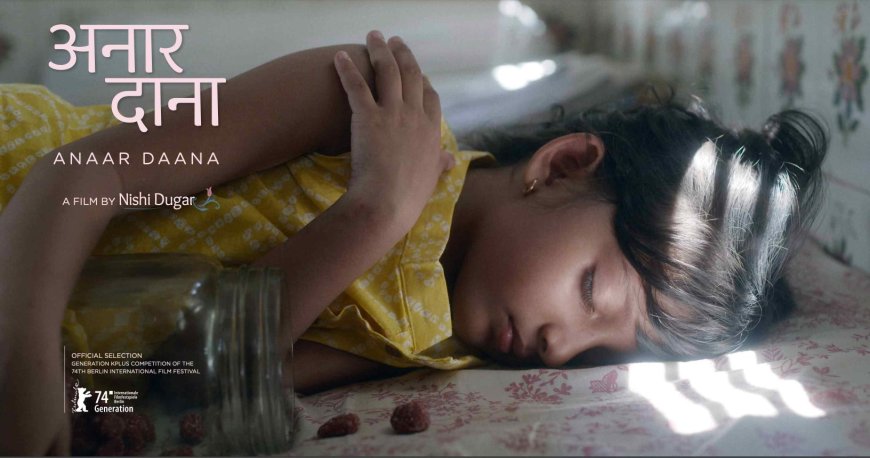We come into the world through the painful process of birth. Therefore, every subsequent stage of growth and realization in our lives is always accompanied by pain. Nishi Duggar's debut short film Anaar Daana (Sour Candy, 2024) deals with these harsh realities, where the protagonist is a young girl, who has not grown up from her childhood days of being carefree. She has to witness the aftermath of the demise of her grandmother, and the brief instances of grief make her go through a stage of cognizance that is a natural prerequisite to achieving maturity in life.
Guddal (Veda Agarwal) is a five-year-old girl who lives in her large ancestral house with her younger brother, Laddoo (Manav Hinduja), and older sister, Chinu (Lavya Jain). When their parents are not home, the widowed nanny ( Manjari Saxena) monitors their actions. Guddal is a mischievous girl who makes Laddoo a partner in all her playful and troublesome activities. Chinu, being the elder, tries to control Guddal, but in vain. One day, the heavy clouds of sorrow from her grandmother's death cast a shadow over her innocent world. As she latently participates in the challenges of mourning in the house, she learns about the unforgiving realities of life.
In the opening scene of the short film, we see Guddal sneak into her grandmother's room to retrieve anaar candies from a glass jar placed on top of a cupboard. Next time, we find her sleeping with the jar in the bed after having the dream of her deceased grandmother. In the final scene, we notice her sharing the candy with Chinu. So, the candies acquire symbolic significance in the narrative and resemble a tangible connection between Guddal and her grandmother's memory, which she cherishes. Further, the act of sharing further highlights Guddal's willingness to pass on the love and memories she holds dear to those around her. The blue tone in the film evokes a melancholic sense of the passage of time, from naivety to wisdom. Such as at the end when Guddal lies to Laddo about the death of their grandmother, whereas previously she had been asking him what passing away means.
Duggar has crafted the film with precisely affecting moments, akin to a whirlpool pulling us into the mind of a young girl struggling to navigate the complexities of growing up in a situation that has left behind an emotional wreckage. As the adult members of the family swarm inside the compound of their house, Guddal's observation of the adults brings a kind of loneliness like she had never felt before. Guddal gets reprimanded for her rude behaviour by her aunt. The adults discuss the rituals in private. All these moments paint an eerily gripping and claustrophobic portrait of abandonment. The cinematography by Ashwin Ameri builds a lucid and isolating world, emphasizing the psychological changes of a high-spirited girl. Pawan Theurkar's editing brings a rhythmic flow, juxtaposing hope and despair. The sound design by Dawn Vincent enhances the layered narrative structure of the film by striking a balance between silence and dialogue. Shalmolee Mukherjee's production design has a simplistic approach that effectively brings out the film's mood. The controlled and modulated performance of Veda Agarwal as Guddal is utterly charming and delightful. Manav Hinduja as Laddoo and Lavya Jain as Chinu also bring a natural ease to their characters. Manjari Saxena, as Aaya Didi, performs the role of an adult caretaker with spontaneity.
Anaar Daana has a gentle flow that leisurely allows the story to achieve a quiet profundity and the confident vision of the filmmaker. It was selected in the Generation Kplus section of the Berlin Film Festival 2024.















